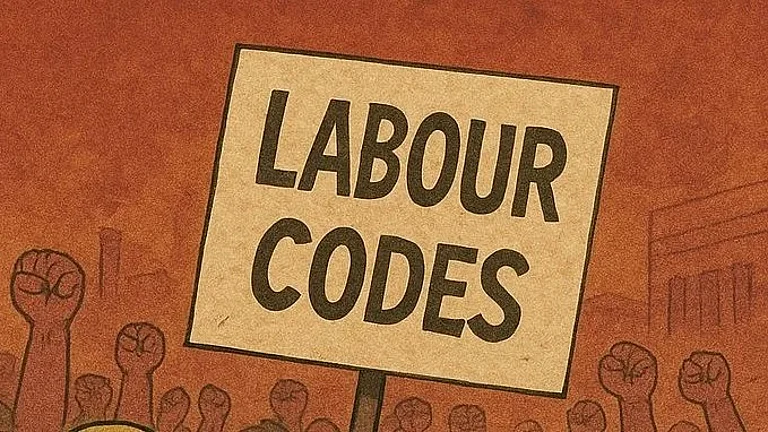Ten major trade unions have called the new labour codes a “deceptive fraud” and announced nationwide protests.
The government says the reforms modernise British-era labour laws, simplify compliance, and align India with global standards.
Businesses are divided: some fear higher operating costs, while industry voices say the codes build a more flexible and future-ready labour market.
Indian Trade Unions Flag Concerns Over New Labour Codes, Plan Nationwide Protests
The unions demanded in a late-Friday statement that the laws be withdrawn ahead of nationwide protests planned for Wednesday
Ten major Indian trade unions have raised objections to the new labour codes that rolled out on Friday, calling them a “deceptive fraud” against workers. The unions, aligned with opposition parties, demanded in a late-Friday statement that the laws be withdrawn ahead of nationwide protests planned for Wednesday.
The government introduced the four labour codes to replace decades-old, British-era laws, aiming to simplify work rules and establish sustainable, equitable regulations in line with global standards. The codes promise social security benefits, minimum wages, and enhanced provisions for women workers. An internal government document shows multiple consultations with unions since 2024, according to Reuters. Despite this, unions continue to strongly oppose the reforms.
A Nomura report noted that the new codes introduce significant and radical changes to ease doing business. The threshold for retrenchment or closure has been raised to 300 from 100 workers, allowing establishments to lay off up to 300 employees without government approval. Compliance thresholds have been raised similarly. The laws also make it more difficult for workers to legally strike.
Businesses have long criticised India’s rigid work rules for constraining manufacturing, which accounts for one-fifth of the $4 trillion economy. Businesses have long criticised India’s rigid work rules for constraining manufacturing, which accounts for one-fifth of the $4 trillion economy. However, Reuters reported that the Association of Indian Entrepreneurs expressed concern that the new rules could significantly increase operating costs for small and midsize enterprises and disrupt business continuity across key sectors.
Yet the Association of Indian Entrepreneurs expressed concern that the new rules could sharply increase operating costs for small and midsize enterprises and disrupt business continuity across key sectors, Reuters reported. Not all unions oppose the overhaul. The right-leaning Bharatiya Mazdoor Sangh urged states to implement the codes after consultations.
Industry leaders have also weighed in. “India’s new labour codes are a reminder that good economics and good politics can walk together. They signal a structural shift in how the country sees work. An economy that blends manufacturing, services and a rising gig sector needs both speed and safety,” said Kartik Narayan, CEO – Jobs Marketplace, Apna. “Taken together, these reforms open the door to a more organised and future-ready labour market where flexibility for employers sits comfortably with fairness for employees.”
Why the Labour Reforms Matter
With no signs of a US–India trade deal being finalised, the reforms could benefit from the catalyst effect of Trump-era tariffs, as the government shifts focus to domestic demand and building a resilient manufacturing base, Nomura said in a report. Given the evolving employment landscape, increasing formal-sector jobs in the more “productive” parts of the economy has become essential.
Archaic labour laws have kept manufacturing units small, limiting economies of scale. The government’s push to implement the new codes signals its ambition to improve ease of doing business, attract foreign investment, and integrate more deeply into global value chains.
“In the short term, businesses will need hand-holding to comply with these laws, and the government will have to manage political pressure from trade unions opposed to the revamp,” Nomura added. “We expect more reforms to be announced in the coming months.”
